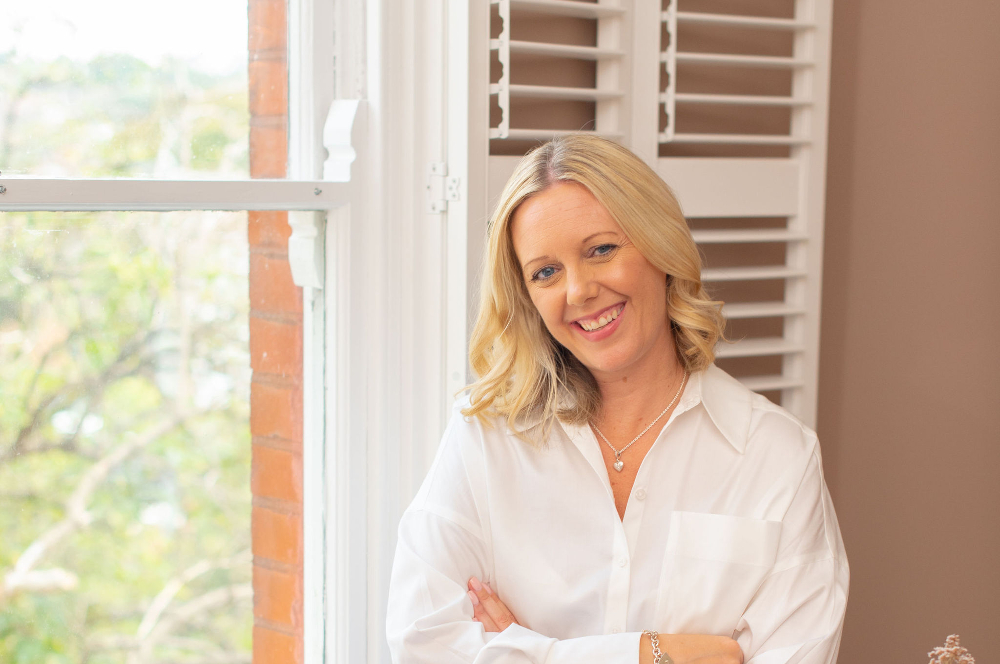How women can plan for financial freedom
Money Talk is intended to inform and educate; it's not financial advice. Affiliate links, including from Amazon, are used to help fund the site. If you make a purchase via a link marked with an *, Money Talk might receive a commission at no cost to you. Find out more here.
The numbers are stacked against women when it comes to money.
We typically take home less pay, work fewer years during the course of our lives due to caring responsibilities, and don’t contribute as much towards our pensions.
Many of these factors are systemic, and require seismic changes – but there’s plenty we can do to help ourselves too.
So I’ve asked Cheryl Sharp to share her tips on how women can plan for financial freedom
A money mentor who specialises in helping women who want to achieve financial independence, Sharp has overcome her own challenges, including domestic abuse, to become a CEO of an accountancy company and business mentor.
For her, financial freedom means being able to live life on your own terms, but it requires intention, planning, and quite a bit of discipline to make a reality.
Here’s where to start:
Track your finances
Start taking control of your finances by tracking your spending in detail for two months using an app, spreadsheet, or written budget.
Note down every expense from household bills through to subscriptions, debt payments, and everyday spending.
This snapshot highlights areas to target for savings.
Once your spending baseline is identified, you can start to build your budget.
List your recurring fixed expenses first, like rent/mortgage, loan payments, insurance, etc. Then add variable but essential costs like groceries, petrol, and household items.
Track what you can and, after two months, review your budget monthly and adjust category amounts based on your current financial situation and priorities.
It will be tough to start with but sticking to your budget long-term is key to financial freedom.
Look at ways to reduce outgoings
It’s important to look at reducing your outgoings too, especially if you want to increase your savings or pay down debts. Here are something that can help:
- Unsubscribe from brand emails to reduce temptation from promotions
- Start a 30-day waiting period for bigger purchases to let impulse spends pass
- Set aside cash in envelopes designated for categories like dining out, entertainment, andclothing to curb spending once the cash is gone
- Pack your lunch and snacks to avoid restaurant costs
- Get creative with free activity ideas such as picnics, museum visits, window shopping, and hiking
- Consider cheaper mobile phone, internet, or TV packages and look for utility savings by comparing providers
- Buy second-hand or swap clothes with friends to refresh your wardrobe on a budget. Sites like Vinted are really having their moment right now
Evaluate what is important
Chances are your life is going through some significant changes. You will be evaluating most parts of your life, and identifying the areas that are most important.
Let these values guide your spending.
For example, if family and friends are highly important, spend more on making memories together.
If time is precious and you value convenience, outsource tasks like cleaning.
Things like these can make a challenging time that much more manageable.
The key is not to deprive yourself of the things you want, need or enjoy – but to budget for them and stick to that budget.
Get organised
Think long-term – where do you want to be and what do you need to get there? Think about what you might need a savings pot for.
It’s prudent to have an emergency fund, in case anything unforeseen happens, like the car breaking down, white goods needing to be replaced, or medical expenses.
It won’t always be possible to include these things if you’re on a tight budget but it is sensible to have pots for unexpected eventualities.
If you can, put money aside for retirement, holidays, or perhaps a property purchase too.
Open separate savings accounts for different goals to divide up your savings and automate monthly transfers from your regular account so contributions happen seamlessly.
If current finances allow, you could also set some discretionary spending money pots for clothing, dining out, hobbies, entertainment and other variable costs that align with your lifestyle.
Use surplus income from bonuses, tax refunds or gifts wisely by saving or paying down debt rather than inflating your spending, and avoid taking on new consumer debt whenever possible.
Make the most of tax-free allowances
Make use of the UK Government’s tax-advantaged savings and retirement accounts such as ISAs, pensions, and LISAs to let your savings grow tax-free.
Also take full advantage of employer pension contributions where you can.
Explore ways to increase your earnings
As well as saving, look at ways to increase your income.
Can you negotiate a pay rise or go for a promotion at work that will offer a higher salary?
Do you have a skill that could be monetised through freelancing to build up some additional income?
Perhaps you have a hobby that could generate some more cash, or you could start a side-hustle?
This increases the money you have available to put towards your financial goals.
Start a business, follow your dream
Many of the women I work with need to find a source of income that also allows them to look after their family and often it needs to offer some flexibility.
Starting their own business and working on their own terms is a good way of achieving that.
Most of us have had a business idea at some point. It could be going self-employed in work that you already do or perhaps taking that side hustle to the next level.
What is important is taking your business idea and turning it into a business plan.
It doesn’t need to be a lengthy plan, but something that clearly outlines what you want to do, how you will do it and growth plans for the first 12 months. Then just go for it.
Lots of women worry that they could never make it successful. In fact, 23% of people don’t launch their business through fear of failure. But what have you got to lose?
Pursuing financial independence requires balancing short-term fun and long-term security.
But by taking control of your finances now and budgeting intentionally, you can gain the power to design your ideal future.
Pin this for later








